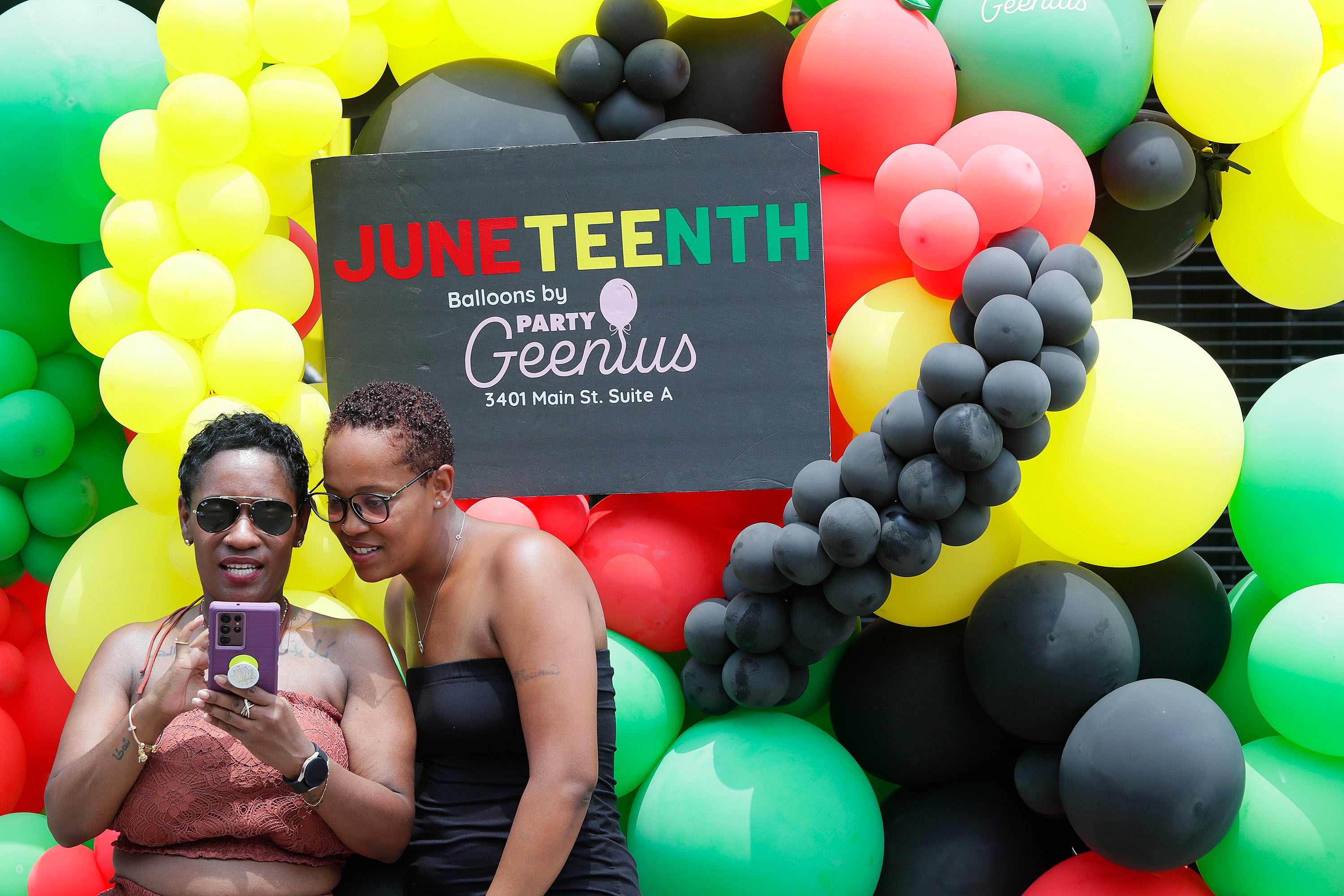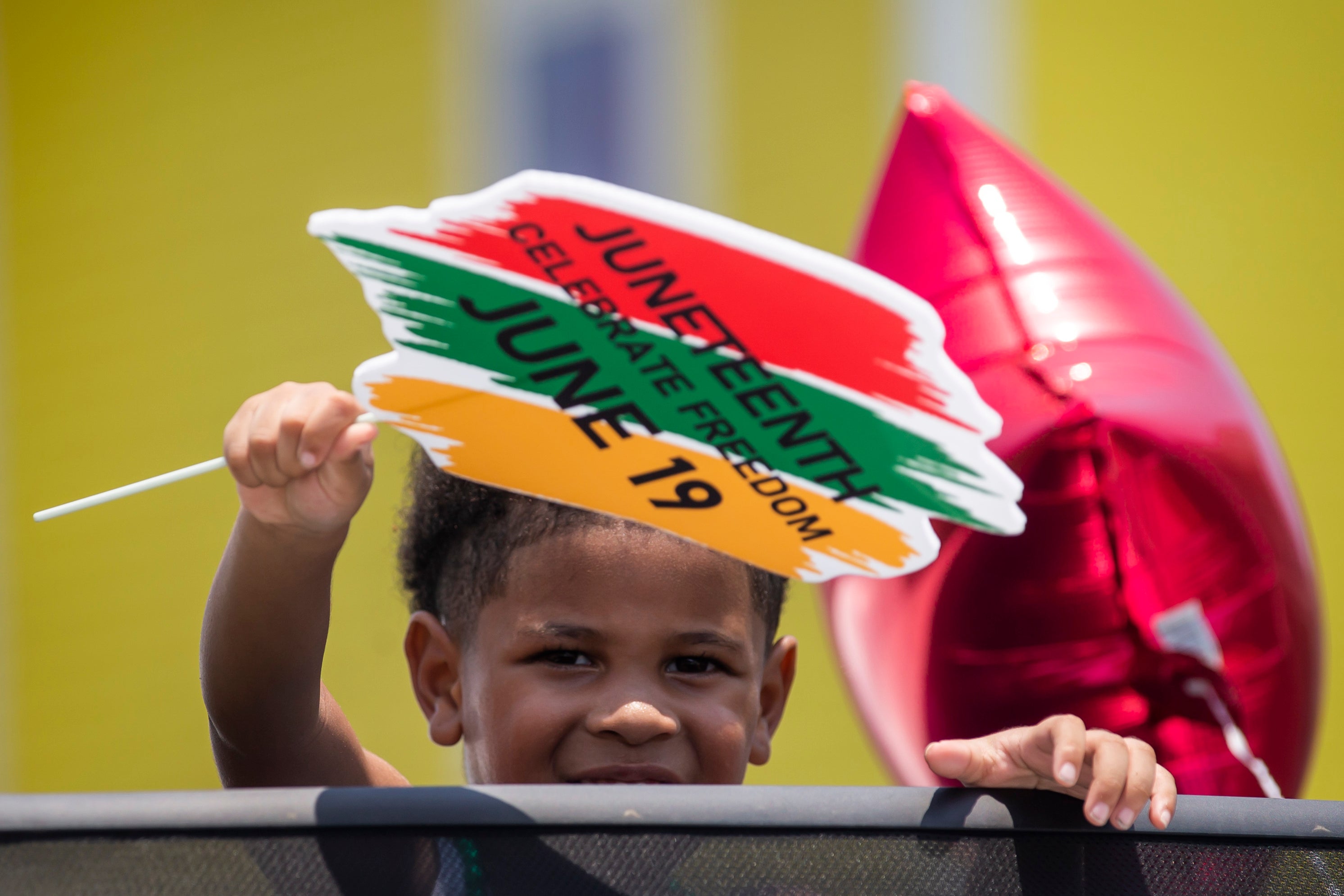The story behind Juneteenth and how it became a federal holiday
Many Americans will be marking Juneteenth this month
Americans will soon celebrate Juneteenth, marking the day when the last enslaved people in the United States learned they were free.
For generations, Black Americans have recognized the end of one of the darkest chapters in U.S. history with joy, in the form of parades, street festivals, musical performances or cookouts.
The US government was slow to embrace the occasion — it was only in 2021 that President Joe Biden signed a bill passed by Congress to set aside Juneteenth, or June 19th, as a federal holiday.
And just as many people learn what Juneteenth is all about, the holiday’s traditions are facing new pressures — political rhetoric condemning efforts to teach Americans about the nation's racial history, companies using the holiday as a marketing event, people partying without understanding why.
Here is a look at the origins of Juneteenth, how it became a federal holiday and more about its history.
How did Juneteenth start?
The celebrations began with enslaved people in Galveston, Texas. Although President Abraham Lincoln's Emancipation Proclamation freed the slaves in 1863, it could not be enforced in many places in the South until the Civil War ended in 1865. Even then, some white people who had profited from their unpaid labor were reluctant to share the news.
Laura Smalley, freed from a plantation near Bellville, Texas, remembered in a 1941 interview that the man she referred to as “old master” came home from fighting in the Civil War and didn't tell the people he enslaved what had happened.
“Old master didn’t tell, you know, they was free,” Ms Smalley said. “I think now they say they worked them, six months after that. Six months. And turn them loose on the 19th of June. That’s why, you know, we celebrate that day.”
News that the war had ended and they were free finally reached Galveston when Union Major General Gordon Granger and his troops arrived in the Gulf Coast city on June 19, 1865, more than two months after Confederate General Robert E. Lee surrendered to Union General Ulysses S. Grant in Virginia.

Granger delivered General Order No. 3, which said: “The people of Texas are informed that, in accordance with a proclamation from the Executive of the United States, all slaves are free. This involves an absolute equality of personal rights and rights of property between former masters and slaves, and the connection heretofore existing between them becomes that between employer and hired labor.”
The now-free people in Galveston started celebrating Juneteenth the next year, an observance that has continued and spread around the world. Events include concerts, parades and readings of the Emancipation Proclamation.
What does ‘Juneteenth’ mean?
It's a blend of the words June and nineteenth. The holiday has also been called Juneteenth Independence Day, Freedom Day, second Independence Day and Emancipation Day.
It began with church picnics and speeches, and spread as Black Texans moved elsewhere.
Most US states now hold celebrations honoring Juneteenth as a holiday or a day of recognition, like Flag Day. Juneteenth is a paid holiday for state employees in Texas, New York, Virginia and Washington, and hundreds of companies give workers the day off.
Opal Lee, a former teacher and activist, is largely credited for rallying others behind a campaign to make Juneteenth a federal holiday. The 96-year-old had vivid memories of celebrating Juneteenth in East Texas as a child with music, food and games. In 2016, the “little old lady in tennis shoes" walked through her home city of Fort Worth, Texas and then in other cities before arriving in Washington, DC. Soon, celebrities and politicians were lending their support.
Lee was one of the people standing next to Biden when he signed Juneteenth into law.
How have Juneteenth celebrations evolved over the years?
The national reckoning over race ignited by the 2020 murder of George Floyd by police helped set the stage for Juneteenth to become the first new federal holiday since 1983, when Martin Luther King Jr. Day was created.
The bill was sponsored by Senator Edward Markey and had 60 co-sponsors, a show of bipartisan support as lawmakers struggled to overcome divisions that are still simmering three years later.
Now there is a movement to use the holiday as an opportunity for activism and education, with community service projects aimed at addressing racial disparities and educational panels on topics such health care inequities and the need for parks and green spaces.

Like most holidays, Juneteenth has also seen its fair share of commercialism. Retailers, museums and other venues have capitalized on it by selling Juneteenth-themed T-shirts, party ware and ice cream. Some of the marketing has misfired, provoking a social media backlash.
Supporters of the holiday have also worked to make sure Juneteenth celebrators don’t forget why the day exists.
“In 1776 the country was freed from the British, but the people were not all free,” Dee Evans, national director of communications of the National Juneteenth Observance Foundation, said in 2019.
“June 19, 1865, was actually when the people and the entire country was actually free.”
There’s also sentiment to use the day to remember the sacrifices that were made for freedom in the United States — especially in these racially and politically charged days.
Said Para LaNell Agboga, museum site coordinator at the George Washington Carver Museum, Cultural and Genealogy Center in Austin, Texas: “Our freedoms are fragile, and it doesn’t take much for things to go backward.”


